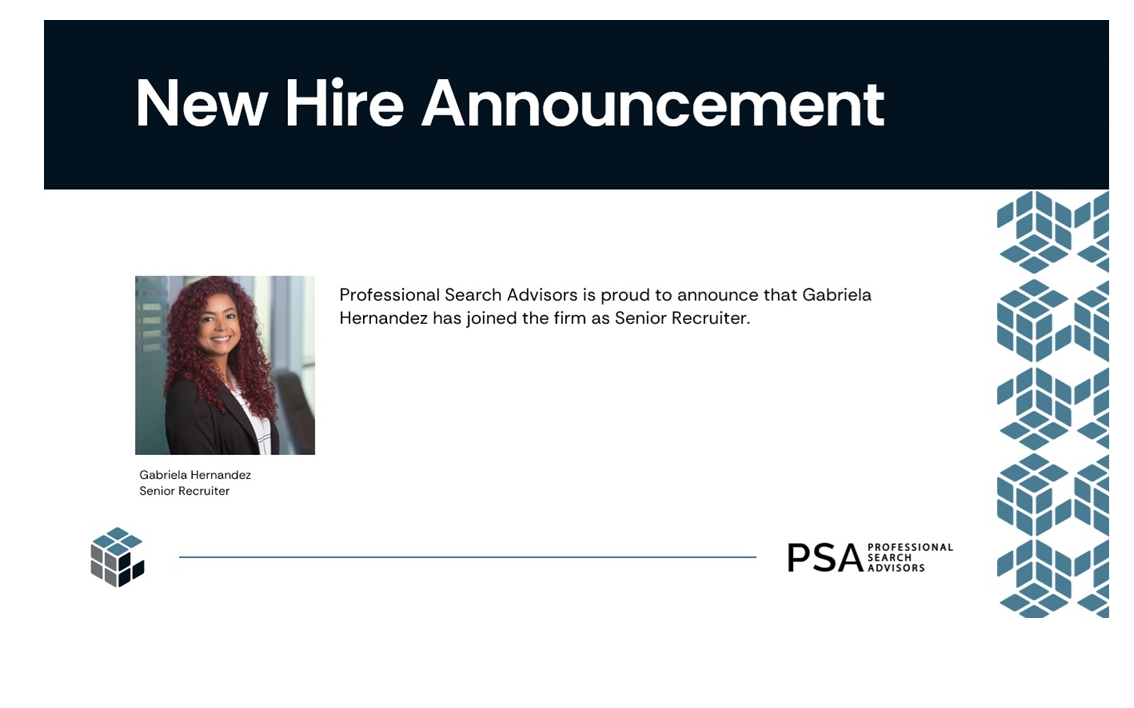Have you noticed that when it comes to running businesses and managing people, many business owners talk about hiring the right talent for their team, but not enough talk about how to keep those people around for a long time?
Sure, people leaving and joining companies is definitely a part of the natural business cycle, but when you see employee turnover rates steadily increase over a short period of time, you might have a problem.
High employee turnover rates can be a nightmare to deal with in any industry. You can spend tons of time and money recruiting, interviewing, and securing top talent for your company, and a couple of months later, somebody leaves, and you have to do it all over again.
So, if retaining top performers has become challenging for your business, especially for senior-level positions, this might be a sign that you have to look at what’s making people want to go elsewhere.
There are many factors that could drive a surge in employee departures but in our experience, inadequate compensation packages remain one of the top factors for companies losing top talent to their competitors.
(Note that we said compensation packages, not salaries. While monetary compensation is important, it’s everything else that comes with it that could influence whether a top performer wants to stay at your company or take another opportunity.)
In this article, we’ll walk you through how to evaluate the compensation packages you offer to remain competitive as an employer in a dynamic job market.
The True Cost of Employee Turnover
When a senior executive or someone with rich niche experience leaves your company, the impact goes far beyond the open role they leave. Research shows that replacing a high-level employee can cost anywhere from 150% to 400% of their annual salary.
These costs include:
- Direct recruitment expenses
- Lost productivity during the transition period
- Knowledge transfer gaps
- Team disruption and potential project delays
- Impact on client relationships and business continuity
That’s why high turnover rates should be taken into consideration not only in terms of people management and staffing needs but also as a serious factor in business performance and financial success.
But how can you tell that your compensation packages need a revamp before high turnover rates become a huge issue?
Warning Signs That Your Compensation Packages Need Review
The warning signs that you need to rework your compensation packages we’re about to discuss often start subtly at first but can quickly escalate into significant retention challenges if ignored.
Market Misalignment
One of the most telling signs comes up when your competitors consistently manage to lure away your top talent with better offers. This pattern often indicates that your compensation packages have fallen behind market standards.
These situations not only risk your talent retention but can also impact your company’s reputation in the industry.
Declined Internal Promotions
Another factor to look into is whether high-performing employees on your team turn down promotional opportunities due to compensation concerns.
To avoid this, make sure the compensation adjustment you offer adequately reflects the significant increase in responsibilities.
When talented employees reject promotion opportunities, it often signals a disconnect between your internal compensation structure and market expectations.
Exit Interview Patterns
Pay close attention when compensation consistently comes up as a primary reason for departure in exit interviews, especially when losing employees with niche skills or a long history at your company.
The departure of key players is an important source of information, as these roles typically require substantial time and resources to replace effectively.
The Reality of Compensation in Employee Retention
Before we go further in this article, we should probably address what may feel like the elephant in the room right now.
Many companies pride themselves on their unique culture, innovative work environment, or mission-driven approach, believing these factors should outweigh salary considerations in attracting and retaining talent.
Yes, these elements definitely play crucial roles in employee satisfaction, but it’s important to acknowledge a fundamental truth: fair and competitive compensation will always be a top consideration for employees deciding whether to stay at one company or move elsewhere.
This may make employment sound relatively transactional, but isn’t that why we call it a job market? Employers offer compensation in exchange for employees’ time and expertise.
So, if you’re tempted to say, “Employees shouldn’t only care about compensation,” you should take a second to look at things from an employee’s perspective. Senior executives and specialized professionals typically bring years of expertise and proven track records to their roles. They understand their market value and expect compensation packages that reflect both their experience and the value they bring to the job.
So, while company culture and mission alignment matter significantly, these factors work best in combination with, rather than as a replacement for, competitive compensation.
Components of a Comprehensive Compensation Review
Now that we’ve established the weight that compensation packages carry in the world of employment, let’s look at how to conduct a comprehensive compensation review.
Base Salary Analysis
The foundation of any compensation package begins with a competitive base salary. This requires thorough market research that considers various factors such as geographic location, industry-specific trends, company size, and required expertise. A well-structured base salary analysis helps ensure your offers are competitive while maintaining internal equity.
Equity and Long-term Incentives
Base salary forms the foundation of a good compensation package, but if you’re in an industry where equity is traditionally offered, this may be another powerful tool to retain senior, experienced talent. A thorough review of your equity structures should include not just initial grant amounts, but also vesting schedules and refresh policies.
Many companies find success with performance-based equity programs that provide additional incentives for exceptional contributors, creating a direct link between company success and personal performance.
Benefits Package Evaluation
Complementing salary and equity, a good benefits package rounds out your total compensation offering. Today’s senior executives look beyond traditional healthcare and retirement benefits, looking for programs that improve both their professional and personal lives.
This could include executive healthcare programs, enhanced retirement matching, substantial professional development allowances, and flexible work arrangements that acknowledge their senior status and autonomy.
Strategic Approach to Compensation Reviews
If you want your compensation packages to remain competitive and keep your employees around longer, a one-time review won’t be enough. You’ll need to create a systematic, ongoing approach to the review process.
Regular assessment cycles, typically annual or bi-annual, can help your company stay ahead of market changes rather than constantly playing catch-up. This proactive strategy often prevents compensation-related turnover before it begins.
Always keep in mind that the foundation of effective compensation reviews lies in data-driven decision-making. This involves analyzing multiple data sources, including industry compensation surveys, peer company analysis, and local market data while keeping an eye on internal equity considerations.
Once you gather and analyze the data, be transparent with your team on how you apply it. Transparency about the review process, explanations of any structural changes, and open dialogue about concerns help maintain trust and demonstrate your commitment to fair compensation.
When employees understand both the process and the total value of their compensation package, they’re more likely to feel valued and remain engaged with the business goals.
Not Sure Where to Start? Partner With a Talent Management Firm
Conducting a thorough compensation package review can be a challenging and time-consuming process. And let’s be real – as a business owner, you might not have the capacity to give your full attention to this task.
Retaining senior-level talent is a high-stakes process, and many companies find great value in partnering with professional talent management firms like Professional Search Advisors. Firms like ours can bring crucial expertise and resources to the compensation review process.
The depth of market intelligence firms like ours provide is invaluable when developing competitive compensation strategies. Our extensive databases and industry connections give us real-time insights into compensation trends, particularly for niche roles or emerging positions where market data might be limited. This data helps companies like yours make informed decisions rather than rely on outdated or incomplete information.
Beyond data, executive talent management firms like Professional Search Advisors provide strategic guidance that can transform your approach to compensation. Our experience working with companies in various industries allows us to share best practices and innovative solutions. For example, we could help you design performance-based bonus structures that not only attract top talent but also drive key business objectives – a delicate balance that many companies struggle to achieve on their own.
And maybe most importantly, companies like ours can provide crucial support during the implementation phase. We help companies navigate the sensitive process of rolling out new compensation structures, making sure that changes are communicated effectively to maintain employee trust and engagement.
Moving Forward and Taking Action
Are you finally starting to see high turnover rates as a signal for the need to change things up? Then by this point in the article, you should also know that a strategic compensation package review can help you take the first step towards employee retention.
Just start with a preliminary analysis of your current compensation structure and gather specific data about recent departures and declined offers. This initial assessment can help you notice patterns that you might otherwise miss.
Then, consider collaborating with an executive talent management firm to conduct a comprehensive review. A firm like this can help you translate your initial findings into actionable insights and strategies. Together, you can develop a detailed action plan to address identified gaps and create a realistic timeline for implementing necessary changes.
The Long-term Plan: Investing and Staying Consistent
Investing time and resources in regular compensation reviews can actually lead to benefits that extend far beyond immediate retention improvements. Companies that maintain competitive compensation packages often attract top-tier candidates when new hiring needs arise. They also typically experience stronger employee engagement and satisfaction, as their team members feel valued and fairly compensated.
Additionally, regular reviews help ensure alignment between compensation and business goals, creating more cohesive and motivated teams. This alignment often leads to improved business outcomes, as employees at all levels understand how their contributions connect to both company success and their personal financial growth.
Remember – the investment in regular compensation reviews typically pales in comparison to the cost of replacing key employees. So whether you’re currently experiencing retention challenges or simply want to prevent them, proactively addressing compensation-related issues can benefit your company and your team in the long run.




